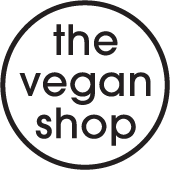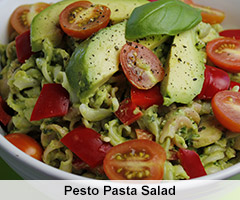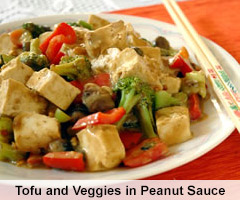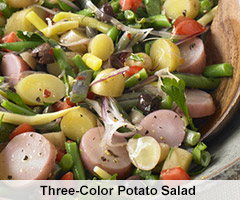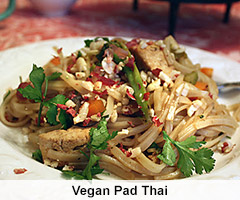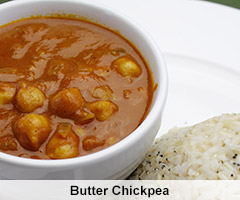Vegan Living
|
|
Whether you’re thinking of going vegan or already eating that way, we know you want to do it right. We’re here to help with advice, information and support. We’ve even got answers to those pesky questions you surely get, like, "How do you get enough protein?"

Most packaged products are well labeled however it is always to good to check ingredient lists to ensure you know what you’re getting. Sometimes, foods you wouldn’t normally associate with animals contain their by-products.
Look out for:
• Gelatin – Usually derived from by-products of the meat and leather industry, gelatin is often found in gummy bears, marshmallows, soups, sauces and gel caps (think supplements).
• Sugar – Believe it or not, sugar is often filtered through charred animal bones as part of the bleaching process. You can avoid this by looking for unbleached sugar products or ones that are labeled "vegan".
• Soup – Many canned and restaurant soups use chicken stock or broth as a base. Even miso soup often has a dashi broth, which is made using seaweed and bonito (a type of fish) flakes.

You don’t need to turn to pre-fab meat alternatives and substitute foods with too-long ingredient lists to get the nutrition you need in your vegan diet. However, since several key nutrients found primarily in animal products can’t easily be obtained by eating a plant-based diet, it’s essential to approach your diet with careful planning and forethought.
To maintain optimal health, it is especially important that vegans consume adequate amounts of the following nutrients, either from foods (including fortified foods) or supplements.
Best Protein Sources
• Legumes
• Grains
• Nuts
• Seeds
Most people require about 0.8 grams of protein per kilogram of body weight, or about 58 grams of protein per day for a 160-pound adult. Vegetarians and vegans may need to eat 10–20% more protein than recommended in order to compensate for the lower digestibility of plant-based protein.
Best Iron Sources
• Legumes (especially chickpeas, adzuki beans, lentils and kidney beans)
• Nuts & seeds (most notably cashews, almonds, pumpkin seeds, sunflower seeds & tahini)
• Whole and enriched grains such as quinoa
• Vegetables (particularly dark and leafy greens)
• Dried fruits
The Recommended Daily Allowance (RDA) of iron for vegetarians and vegans is 1.8 times higher than for non-vegans: 27mg. versus 15mg. This is because iron from plant foods is not as available to the body as iron from animal sources. Although iron intake and stores are usually adequate in vegetarians and vegans, young and pregnant women and athletes should pay special attention to make sure their needs are met.
Best Zinc Sources
• Legumes (especially adzuki and navy beans and split peas)
• Nuts and seeds (pumpkin seeds, sunflower seeds and cashews)
• Whole grains and wheat germ
Plant foods tend to be lower in zinc concentrations than animal foods. In addition, the bioavailability of plant-based zinc is lower than from animal products. Marginal deficiencies in zinc may be common in vegans, especially if they consume a lot of wheat bran and soy, as well as tea, chocolate and coffee. (These foods are high in phytates, which interfere with zinc absorption.)
Increase the bioavailability of zinc by soaking and sprouting grains, seeds, nuts and legumes, by leavening breads with yeast and sourdough and by fermenting foods.
Best Iodine Sources
• Iodized salt
• Kelp powder (The upper limit for iodine is 1100 mcg. Because seaweeds contain high amounts of iodine, be careful not to consume excessive amounts.)
Iodine is an essential mineral required for good thyroid function. Too little or too much iodine in the diet can lead to hypothyroidism, a precursor to disease. Vegetarians and vegans generally consume less iodine than the general population, but this varies depending on their intake of supplements, iodized salt, and seaweeds. Vegetarians or vegans who do not consume iodized salt may be at risk for iodine deficiency.
Best Essential Fatty Acid Sources
• Microalgae DHA supplements
• Flaxseed oil
• Hempseed oil
• Walnuts
• Chia seeds
Essential fatty acids are aptly named because they are truly essential to health. Since the body does not manufacture them, they must be obtained from the diet. Omega-3's are one class of essential fatty acids that are important for maintaining cell membranes, including those of the brain and eyes, and for regulating bodily processes.
** To achieve a balanced Omega-6/Omega-3 ratio, decrease intake of certain vegetable oils including corn, soy and grapeseed oils. **
Best Vitamin B12 Sources
• B12-fortified foods, including fortified meat substitutes, cereals & non-dairy milk beverages
• Nutritional yeast
• B12 supplements
It is challenging to maintain adequate levels of vitamin B12 on a primarily plant-based diet. Because low levels of this vitamin increase disease risk and can negate the positive cardiovascular effects of a vegetarian or vegan diet, supplementation with vitamin B12 is strongly recommended. This is especially true for pregnant and lactating women for whom optimum vitamin B12 intake is crucial.
Best Calcium Sources
• Low-oxylate greens such as broccoli, kale, collards, okra and Chinese greens
• Tofu
• Soy beverages
• Sesame seeds
• Almonds
• Legumes
• Dried figs
• Other calcium-fortified foods
Calcium is essential for overall body health, helping to ensure proper muscle and nerve function as well as strong bones and teeth. Vegetarians and vegans are most likely to have calcium levels lower than the general population along with the lower bone density that implies. (Inadequate dietary protein can also contribute to low bone density.)
Calcium levels can be negatively affected by other dietary factors such as high sodium consumption, too much or too little protein, caffeine and soft drinks with phosphoric acid, so be sure to be aware of these, as well.
Best Vitamin D Sources
• Moderate warm-month sun
• Fortified soy beverages
• Fortified cereals
If you're a vegetarian or vegan who spends a lot of time indoors or live in a northern clime, chances are you have less-than-optimal vitamin D levels. Sufficient vitamin D can be produced by exposure to the sun during warm months: 10–15 minutes on face and forearms for people with fairer complexion or 30 minutes to 3 hours for people with darker complexions. During cold months, you will likely have to depend on fortified foods or supplements.

Animal-derived ingredients abound in supplements, and vegans must be alert to avoid them. We strongly recommend you try our range of Deva supplements.
• Gelatin, derived from cattle and pigs, is the most pervasive animal product in nutritional supplements. Beware of capsule and softgel products that do not have "vegi-caps" or plant-derived sources on the label.
• Beta-carotene, though vegetarian sourced, is often coated in gelatin for stabilization purposes.
• L-Tyrosine is typically derived from poultry feathers.
• Glucosamine Sulfate is usually derived from shellfish, although a new vegetarian source is now being tested for efficacy and stability.
• Chondroitin Sulfate is derived from cattle.
• Vitamin D3 (as cholecalciferol) is usually derived from lanolin (sheep's wool), animal hides or fish oil. D2, a synthetic version, is not as bioavailable as D3.
• DHA (Docosahexaenoic acid), an essential omega-3 fatty acid, is derived from seaweed but normally packaged in gelatin softgels.
